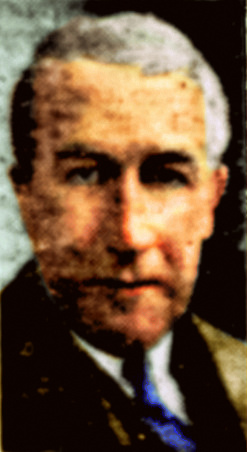
Stokes: NAM active politically, but doesn’t go out on limb
It has little love for New Deal, but learned hard way not to endorse anyone
By Thomas L. Stokes, Scripps-Howard stand writer
Washington –
Much on the controversy about group or class activity in politics, now agitated over CIO’s Political Action Committee, resolves itself down to definitions, primarily of “political activity,” and there are interesting distinctions without much difference in some cases.
This is illustrated in the parallels that can be drawn between PAC, representing one big segment of labor, and NAM – National Association of Manufacturers – representing some substantial business interests. Officials of each have been examined by the House Campaign Investigating Committee.
How ‘voluntary’
Sidney Hillman’s PAC is seeking “voluntary contributions” from union members. The question has been raised about how “voluntary” these might be in some cases, union discipline being what it is.
The money goes into a fund which is to be used for what Mr. Hillman calls “educational purposes,” to pay for publications stating issues and instructing voters how to register and how to be effective politically. And to employ men and women to work along the same general lines.
Balance frozen
Up to Aug. 15, PAC had spent some $408,000, of which $371,000 came from a fund of $670,200 contributed by unions, and the rest from contributions by individual union members on the voluntary basis since July 23. On that date, the balance of the $670,200 was frozen until after the election because of the legal ban on union contributions for political activity.
PAC hopes to raise $1,500,000 by voluntary contributions for the campaign. And the National Citizens Political Action Committee. recently created, of which Mr. Hillman is also chairman, is to raise $1,500,000 in contributions from the public. This would make a total of $3 million – if they can get it.
NAM has an annual budget of about $3 million which is raised about half and half by dues and by voluntary contributions, according to president Robert M. Gaylord, in testimony before the House Committee. About $1,385,000 of this amount will be spent this year by the “National Industrial Information Committee” for “educational purposes,” as Mr. Gaylord described it.
Sends out voting record
The Information Committee, which is described as “charged with the responsibility of promoting a better public understanding of industry and the way it operates,” sponsors meetings with business groups, church groups, women’s groups to present issues affecting business. It has been created since President Roosevelt took office.
Mr. Gaylord conceded that national legislation might be discussed at these meetings, but he did not think individual members of Congress were. He said NAM’s Washington office occasionally sends out the voting record of Congressmen on bills affecting business. NAM also maintains a lobby here, he said, to present the viewpoint of business. Labor has similar lobbies.
A difference, Mr. Gaylord pointed out, is that NAM has not pledged itself to a candidate for President, as has PAC, nor has NAM engaged in activity in primary campaigns or election campaigns, as has PAC.
Keeps head down politically
Although Mr. Gaylord said that both Democrats and Republicans belong to his organization and it could not take sides, it is only realistic to point out that no one who knows anything about the organization expects anything very favorable to the New Deal to come from it, judging from past performance, nor many of its prominent members to be on the Roosevelt side in the election.
The inference from Mr. Gaylord’s testimony was that NAM has learned, from experience and hard knocks, to keep its head down politically. He said NAM would not contribute as an organization to a political candidate, even if the legal ban did not exist, as this would only defeat its purpose.
“You can’t tell Americans how to vote,” he declared.
He thought it was all right for members of one family to contribute large amounts to a political campaign “if within the law.” This is where NAM influence is effective politically, individually as members, as has been demonstrated in the past, aside from such activities as those of its Information Committee in the propaganda way.


